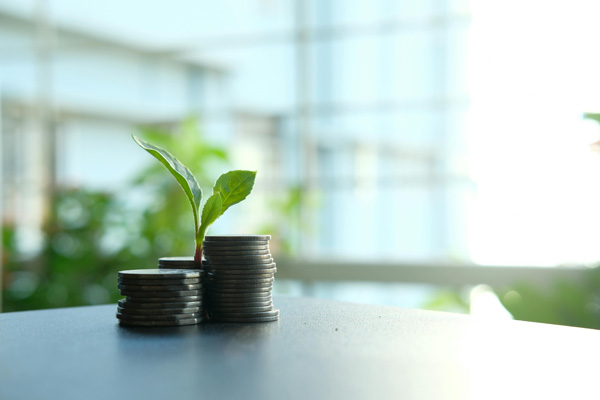UK aims to reinforce trust in voluntary carbon markets

[Image of green finance, Credit of pexels]
The UK government launched a 12-week national consultation on April 17, 2025, titled “Voluntary Carbon and Nature Markets: Raising Integrity.”
Led jointly by the Department for Energy Security and Net Zero (DESNZ) and the Department for Environment, Food & Rural Affairs (DEFRA), the initiative aims to establish clearer standards for the voluntary carbon credit market, with the long-term vision of positioning the UK a global hub for green finance.
Carbon credits are certificates representing the reduction or removal of greenhouse gas emissions.
Companies can earn them by investing in eco-friendly projects such as reforestation, renewable energy development, or methane capture.
For instance, a project that removes one ton of CO2 from the atmosphere can generate one carbon credit. These credits can be sold to other companies, allowing them to "offset" their emissions.
While the EU operates a tightly regulated compliance market (EU ETS) where governments cap and monitor emissions, voluntary carbon markets have come under scrutiny for their lack of transparency and consistent quality standards.
This has made it challenging for buyers to trust that their investments actually contribute to meaningful climate impact.
To address these concerns, the UK is introducing six Integrity Principles.
These include establishing clear definitions of credit quality, aligning activities with the Paris Agreement's 1.5°C target, and ensuring transparency in sustainability reporting.
Climate Minister Kerry McCarthy stated, "Building trust in these markets is crucial for accelerating climate action and attracting private capital."
Colombia is currently ranked first globally for voluntary carbon market investment attractiveness, according to the 2024 VCM Index by Abatable.
With vast biodiversity and progressive national policy, Colombia has effectively reduced or removed around 140 million tonnes of CO2 since 2008, 80% of which occurred in the past five years.
The U.S. has also taken steps to enhance voluntary market credibility.
In 2022, it released seven guiding principles to ensure integrity and scalability.
The U.S. Commodity Futures Trading Commission (CFTC) further issued guidelines to strengthen transparency in credit trading.
One practical example of this is Microsoft, which has an active participant in the voluntary carbon market through its carbon removal program.
The company has pledged to become carbon negative by 2030 and has invested in projects like biochar production and direct air capture, purchasing verified credits to offset its emissions.
This illustrates how companies are utilizing federal guidelines to ensure credible, science-based emissions reductions.
The London Stock Exchange Group (LSEG) estimates that the UK now accounts for 10–12% of the global green finance market, a significant rise compared to just a few years ago.
Though still trailing the EU—which held 40% of the global market as of 2022 according to the OECD—the UK is emerging as a serious contender.
Strengthening the credibility of the voluntary carbon market is essential to unlocking the full potential of the UK's green finance sector.
When investors are confident that carbon credits are backed by real, verifiable emissions reductions, they are more inclined to direct private capital into sustainability-linked ventures.
This increased flow of investment can stimulate innovation in carbon removal technologies, support the growth of climate-positive enterprises, and ultimately reinforce the UK's ambition to lead in global green finance.
By reinforcing rules and aligning with best practices from global leaders, the UK aims to build a trustworthy voluntary carbon market that drives environmental integrity and economic opportunity.
Improving credibility is not merely a technical fix—it’s a key strategic imperative for attracting investment, nurturing green innovation, and securing the UK’s position as a global leader in sustainable finance.

- Sungyoon Lee / Grade 10
- Dwight School Seoul

![THE HERALD STUDENT REPORTERS [US]](/assets/images/logo_student_us.png)
![THE HERALD STUDENT REPORTERS [Canada]](/assets/images/logo_student_ca.png)
